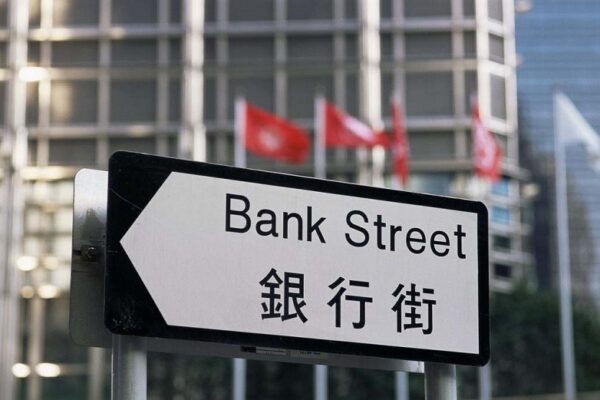
3.43 million RMB! You can buy a new small detached house in Tokyo, Japan
2024-04-12
Gold vs. Hong Kong Insurance, who is better for long term investment?
2024-04-19Insurance is a very popular financial product in Hong Kong. Whether it is for investment or protection, there are many types of insurance for you to choose from.
However, for those who are new to the Hong Kong insurance market, some technical terms or jargons in the insurance brochures and product terms and conditions may be confusing.
Today, we share with you the common terms used in Hong Kong insurance to help you better understand Hong Kong insurance. (Different insurance companies may have slight differences, for understanding and reference only, subject to the insurance company)

Explanation of basic common terms
01
insurers
An insurer is an insurance company that enters into an insurance contract with the policyholder and assumes the responsibility to indemnify or pay out insurance benefits. They specialize in providing insurance services to individuals and companies to ensure that they can provide the necessary protection in the event of a risk.
02
Agent
An insurance agent is a person who signs a labor contract with a particular insurance company and works exclusively for this company. Their main duties are to introduce the company's insurance products to customers, finalize the plan, accompany the signing of the policy, post-policy services, and the exclusive sales manager for claims.
03
Broker
Insurance brokers are not employed by insurance companies and are likely to be independent brokers but belong to third party brokers. They are similar to intermediaries and can sell insurance products of various companies to their clients. Some of them can accompany the signing of the policy, and after the signing of the policy is completed, they can also provide follow-up preservation services and assist in the settlement of claims.
04
Issue Date
This refers to the date that the policy officially begins once underwriting is complete. This date is usually listed on the policy information page. If there are changes to the original terms and conditions or coverage of the policy, the "effective date" will be indicated in the relevant endorsement.
05
Policyholder
A policyholder is a person who enters into an insurance contract with an insurance company and who pays the premiums. Generally speaking, only those who have reached the age of 18 can act as policyholders. The policyholder can apply for change of policy details, surrender of the policy or withdrawal of the cash value of the policy.
06
Insured (Policy Insured)
An insured person is an insured person, a person protected by insurance. Policyholders can be the immediate family members of the insured, such as spouse, children, parents, other members of the family or close relatives who have a relationship of support, alimony or maintenance with the insured; or workers who have a labor relationship with the insured.
07
Beneficiary
The beneficiary is the person who receives the compensation benefit after the death of the insured. Compensation benefits are given only after the death of the insured, in other cases, such as hospitalization reimbursement and critical illness benefits. Many insurance companies also accept live-in partners, male and female friends as beneficiaries.
08
Insurable interest
Insurable interest relationship means that the policyholder has an "insurable interest relationship" with the following people: himself/herself, his/her spouse, his/her children, his/her parents; other members of the family or close relatives who have a relationship of fostering, alimony, or support with the policyholder; and laborers who have a relationship of employment with the policyholder. This is a prerequisite for the policyholder to be able to purchase insurance.
09
premium waiver
Premium waiver means that during the premium payment period stipulated in the insurance contract, if the policyholder or the insured person meets certain specific circumstances (such as death, disability, critical illness or minor illness, etc.), the insurance company is authorized and agrees that the policyholder can no longer pay the subsequent premiums, and the insurance contract will still be in force. In this way, the insurance still provides protection when a risk occurs.
10
Nominal amount
The Nominal Amount is used as an amount to calculate the plan's premiums, guaranteed cash value, guaranteed withdrawable cash, non-guaranteed terminal dividends and other policy values. It is critical to understanding the insurance plan and the insurer's ability to pay. When purchasing an insurance policy, it is important to understand the nominal amount and the coverage and costs associated with it.

Five terms of Hong Kong insurance
Cooling-off, waiting, grace, resumption and claim periods, is an important concept that every policyholder needs to understand.
01
cooling-off period
The cooling-off period is a system whereby the policyholder can return the contract to the insurer and apply for cancellation within an agreed period of time after receipt of the insurance contract, if he/she does not agree with the contents of the insurance contract, and can receive a full refund of the premium.
In Hong Kong, this period is generally 21 days, during which the policyholder has ample time to review the contents of the contract and make an informed decision.
02
waiting period
The waiting period, also known as the observation period, is the period of time during which the insurance contract is in force and the insurance company is not liable even if the conditions for settlement of the claim are met. This system is used to prevent the taking out of sick insurance and to protect the insurance company from losses.
03
period of grace
The grace period is set for customers who cannot pay their premiums in time before the policy payment date deadline.
There is usually a grace period of about one to two months, and as long as the payment is completed within the grace period, the validity of the policy will not be affected.
This gives the insured a cushion to help avoid losing coverage if they forget to pay.
04
refractory period
Policyholders who have not paid their premiums in full for personal reasons after the first year of the policy has been in force can apply to the insurance company for reinstatement within a certain period of time. The reinstatement period is usually two years, within which the policy will be reinstated if the premiums are paid in full.
The reinstatement period of a Hong Kong insurance policy is normally two years.
05
claim period
The claim period is the period of time within which a customer is required to submit a claim after an insurance incident.
The claim period is set to ensure that the customer's claim is processed in a timely manner.
The claim period requirements vary for different insurance situations and policyholders should be aware of and comply with the relevant regulations.
The insured person's unfortunate death requires immediate notification to the insurance company and submission of all claim documents within 3 months; the insured person's serious illness requires notification to the insurance company within 60 days and submission of all documents within 6 months; the insured person's hospitalization generally requires notification to the insurance company within 10 days of the admission to the hospital, and the submission of all documents after 30 days of the date of discharge from the hospital or the date of surgery.

Understanding the five deadlines for Hong Kong insurance is crucial for every policyholder. This not only helps to understand the contents and provisions of the insurance contract, but also allows you to know when and where to submit your application to protect your rights and interests when you need to make a claim.



